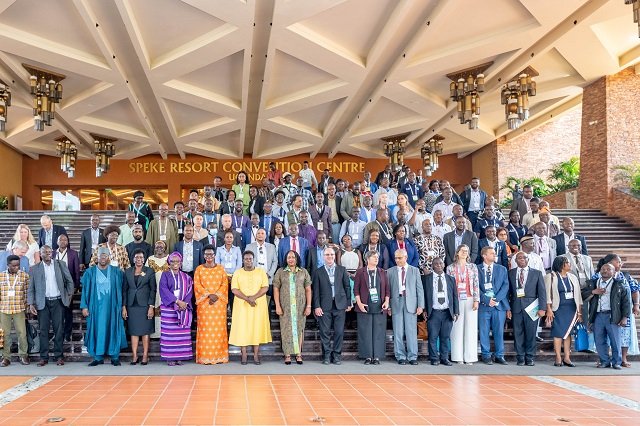Nigeria.- The Technologies for African Agricultural Transformation (TAAT) has organized a workshop for Aquaculture stakeholders in Sub-Saharan Africa to brainstorm and develop plans for aquaculture development in the participating countries.
The workshop which is a 2-day event holding in Abuja Nigeria’s capital had TAAT participating countries, in attendance.
The Program Coordinator of the Technologies for African Agricultural Transformation (TAAT) Dr. Chrysantus Akem who Spoke to Journalist on the concept of the organization at the event, said TAAT was conceived to bring together a number of value chains to see how agriculture can be transformed in Africa.
He noted that over the years a lot of technologies which have not been implemented have been generated in the 18 identified value chains which have resulted in huge importation of agricultural produce, a problem TAAT was initiated by the Africa Development Bank to tackle.
“we have a lot of technologies but they all either in shelves or in publications and Africa continue to import, spending more than 35 Billion Dollars on import of food crops most of which can be produced in Africa so the Africa Development Bank took the lead to basically initiate TAAT to review all those technologies that are available across the 18 value chains to see we can transform agriculture in Africa”
He said TAAT is trying to see how some of the technologies that have been proven can be used to increase fish production and productivity and the focus is on two major species which are catfish and Tilapia.
“we are trying to see how we can increase the production and productivity of the fish that Africa consumes we are focusing on two main species, Tilapia and catfish and basically we are looking at what is limiting us from reaching capacity within this two species and the key thing that e have identified is the fish feed 60% to 70% of production cost for fish goes towards feeds so it makes sense for the Aquaculture compact to link up with cassava, maize and soya beans which provides the ingredients for which that feed is produced”
“that is one of the challenges that we think WorldFish already have technology that have been proven and we are basically trying to see how we can expand it to the fish producing countries in Africa” he added
Stay Always Informed
Join our communities to instantly receive the most important news, reports, and analysis from the aquaculture industry.
FUNDING
On the issue of funding, Dr. Akem said the Africa Development Bank has initiated the program with the sum of a hundred and twenty million Naira seed money and the Bill and Belinda Gates foundation has also made available two hundred and thirty million Naira through AGRA which TAAT intends to tap into.
He added that the programs set target is to reach more than forty-six million direct and indirect beneficiaries, reaching out to a number of youths and increasing the food productivity in the value chain which has been targeted.
Delivering his welcome remark, the Director of Fisheries department Federal Ministry of Agriculture and Rural Development who was represented by the Deputy Director Aquaculture, Mr. Pwaspo Istifanus Emmanuel said it is anticipated that TAAT will harness technologies for aquaculture for increased fish production in the country.
He noted that the success of fisheries depends largely on research, new technologies and production of good quality fish and fisheries products in line with international best practices and that fisheries contributes about 4.5% to GDP and employs an estimated 10 million Nigerians in both Primary and secondary fisheries operations.
He further urged participants to acquaint themselves with the principles of TAAT in order to be able to develop country-specific priority and plans towards the successful realization of the project objectives.
Editor at the digital magazine AquaHoy. He holds a degree in Aquaculture Biology from the National University of Santa (UNS) and a Master’s degree in Science and Innovation Management from the Polytechnic University of Valencia, with postgraduate diplomas in Business Innovation and Innovation Management. He possesses extensive experience in the aquaculture and fisheries sector, having led the Fisheries Innovation Unit of the National Program for Innovation in Fisheries and Aquaculture (PNIPA). He has served as a senior consultant in technology watch, an innovation project formulator and advisor, and a lecturer at UNS. He is a member of the Peruvian College of Biologists and was recognized by the World Aquaculture Society (WAS) in 2016 for his contribution to aquaculture.







